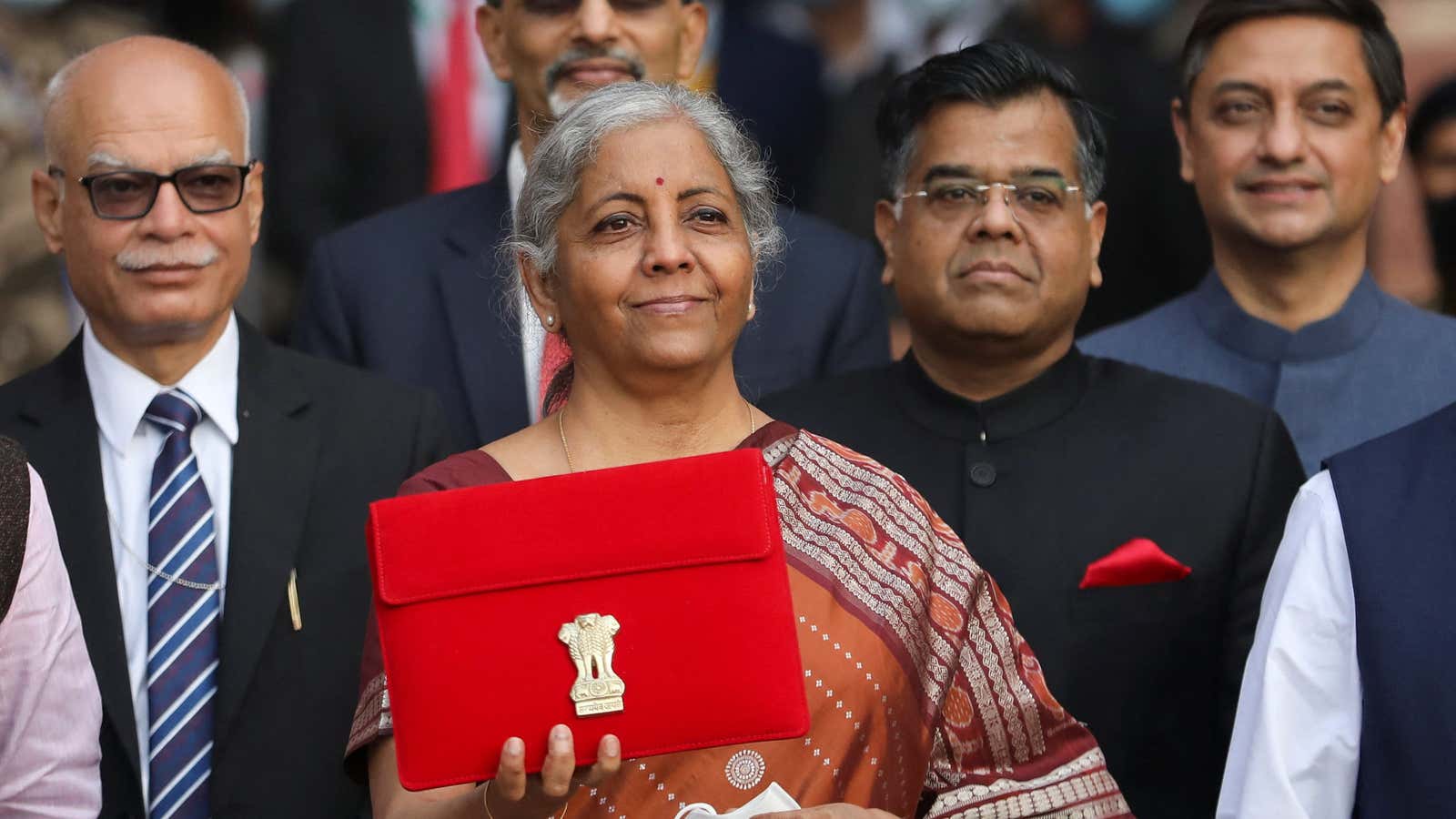India today finally acknowledged the country’s cryptocurrency industry as a legitimate one by bringing it under the tax net—but at a high cost.
In her union budget for 2022-23, finance minister Nirmala Sitharaman announced a 30% tax on any income from the transfer of virtual digital assets, specifying that no deductions and exemptions will be allowed.
There will also be a 1% tax deducted at source (TDS) on payments made for the transfer of digital assets, she said, adding that any loss made on the transaction of such digital assets cannot be set off against any other gain. “The TDS is applicable beyond a specified monetary threshold, and the gift of virtual currencies is taxable in the hands of the recipient,” Sitharaman said in her budget speech (pdf).
This follows months of deliberations among Indian authorities over how to tax cryptocurrency investments. Only a few weeks ago, several trading platforms were put under probe for alleged tax evasion.
Some cryptocurrency stakeholders, however, chose to believe that the new tax implies the government is keen on regulation, not a ban.
“Though 30% tax rate is on the higher side, and more clarity is required on the setting-off of losses, this is still a start and hopefully, with time, more clarity will emerge,” said Venus Dhuria, co-founder of AppyHigh, a mobile internet technology company. “Another benefit of recognising anything via regulation is that it prevents unscrupulous or illegal activities in the space.”
On the digital rupee
The Reserve Bank of India (RBI) will introduce its much-talked-about digital currency in the next financial year, Sitharaman said today. This was the first time the government has given a timeline on the launch of a central bank digital currency (CBDC).
“Introduction of a central bank digital currency will give a big boost to the digital economy. Digital currency will also lead to a more efficient and cheaper currency management system,” she said.
A CBDC is a digital version of fiat money that will co-exist with hard cash.
Considering about 80% of global central banks are exploring CBDCs, India cannot afford to fall behind on this front.
The country’s crypto ecosystem had several demands, including a classification of cryptocurrencies, clarity on taxation, and a self-regulatory framework shaped by the industry. Now that there’s clarity on taxation, the formal classification of cryptocurrency is awaited.
“India’s digital currency will bring about an efficient, credible, payments option. It will also reduce dependency on cash, and increase cheaper currency management system in the long run,” said Toshendra Sharma, founder and CEO of NFTically, a global B2B software-as-a-service company.
